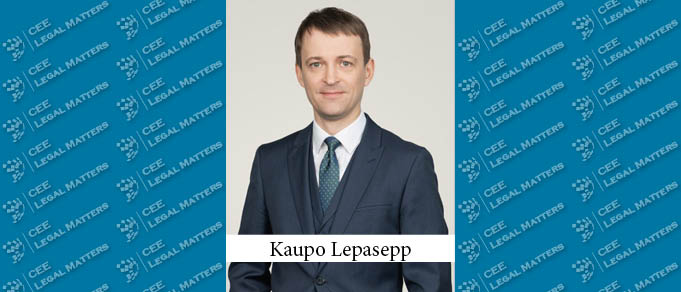“Overall, Estonia is doing great as a democracy, with a solid rule of law and dedication to the EU and international cooperation,” says Kaupo Lepasepp, Partner at Sorainen in Tallin. “To be fair, we have seen a slight turn towards conservatism, even though not a harsh one. One of the members of the ruling coalition is close to right-wing politics, so he is dictating a right-wing tone to the coalition as a whole.”
Still, Lepasepp is satisfied with the democratic situation in Estonia, which he attributes to the fact that “we were previously in a totalitarian situation, and we sure don’t want it back." He explains that, "during the 1980s the country was an economic wasteland. Traveling to Hungary felt almost like going to Disneyland for me. This is what totalitarianism does to you." He sighs at some of the changes in nearby countries. "I am sad to see that Poland and Hungary are getting close to it. Even if one doesn't care about the rule of law, at least look at the state of the economy. We are committed to the EU, as people overall understand its importance. We are a small country, and we shouldn’t try to make ourselves even smaller.”
“Recent legislation in Estonia is quite boring; it’s business as usual, “says Lepasepp. Most of it, he says, has been concentrated in recent months on the response to COVID-19, which was similar to other countries. He believes that the Government’s economic support was “good and rational because they tried hard not to throw money away, but still gave enough to companies so they wouldn’t have to lay people off.”
“Businesses are doing okay, mostly because measures weren’t that strict,” he says. “At the end of the day, we went through the crisis pretty well and ended up with a relatively small number of cases. It’s interesting to note that at the very beginning, it looked as though we were going to suffer much more. We have an early holiday, and people were going to Austria and Italy in large numbers.”
Still, he adds, “the situation is not as good as it was at the beginning of the year. The crisis is going to have the biggest impacts on medium-sized companies, as they have neither the small costs as small ones do nor the market position of big players. People expected a 'zombie-apocalypse' kind of a scenario as a result of COVID-19, but that didn’t happen.” According to him, “if and when the second wave hits, I expect it to be more relaxed than this one because people are prepared, they have some cash reserves ready, and hence bigger leverage over the pandemic.”
Lepasepp is afraid the economic situation in German, Finland, and France may be problematic for Estonia, as “we are a dependent economy, and we are all in this together. We need a more organized global response in order to prevent a spillover effect.” He adds that the most active fields are now “start-ups, which are raising money at an accelerated pace, but also older industries, such as energy, food, and manufacturing.
In the meantime, Lepasepp says, the legal market is surviving the crisis. He reports that firms had to close offices, but managed to implement effective home working programs.“April and May are usually busy in law firms," he says, "but the situation helped us buy ourselves time to implement digital and online working schemes, and carry on working as usual.”
“I hope for a calmer summer, and if it all goes well, dark times will be over soon,” Lepasepp says. “If you are in deep trouble, it’s always important to acknowledge it and make it better any way that you can.” He concludes that he is cautiously optimistic and that he doesn’t believe that “COVID-19 is the biggest problem we are facing, it is only making tensions more heated. If we look around the world, tensions are growing larger and larger, perhaps that’s due to the lack of debate and discussion.” Nonetheless, he concedes, ”this is scary. The fact that people are becoming more divided is also bad for the economy of each country because it ruins trust. People are different and in order to work together, they need trust and tolerance. I was born in an empire that was built on this kind of rhetoric, and honestly, I would not recommend it to anyone.”
















